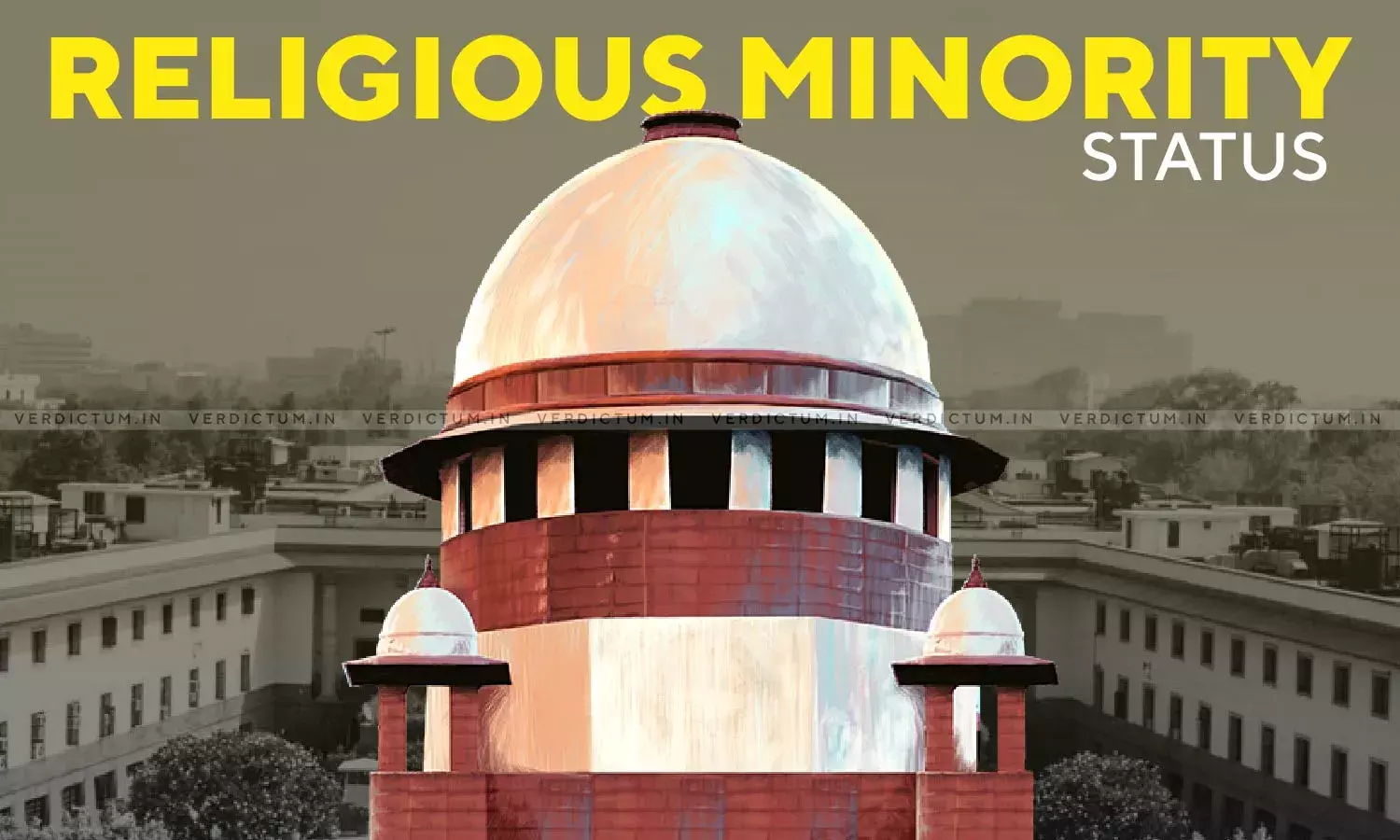Religious Minority Status- Supreme Court Gives Last Opportunity To Center To Get Responses From States

The Supreme Court while hearing a batch of cases seeking guidelines for the identification of minorities at the State level, said that it cannot keep postponing the matter on the ground of non-filing of responses by a few states.
“We will presume that they have nothing to say”, said a Bench comprising Justice SK Kaul, Justice Abhay S Oka and Justice JB Pardiwala when Attorney General R Venkataramani apprised the Court that six states have not filed their responses and the matter may be posted for further hearing in March 2023. “I still find that six states/union territories have not filed their responses. Let me take stock from them”, said the AG.
“In Jammu & Kashmir (J&K), Hindus are a minority. We understand why they have not responded”, said Senior Advocate CS Vaidyanathan on non-filing of a response by the Union Territory.
Advocate Ashwini Kumar Upadhyay termed the present case as “an important matter” and said, “Rupees Ten Thousand Crores per year is spent without defining ‘minority’”.
The Bench expressed concern and told the Attorney General, “But, J&K is being administered by you”.
The Apex Court then agreed to the request made by the Attorney General and gave “last opportunity to the Centre Government to take responses of the remaining states, failing which the Court shall presume that they (remaining states who have not filed their responses) have nothing to say”.
The Senior Advocate appearing for the petitioner further said that the Union has filed a status report and many states have agreed that “State should be the unit and not the Union” for the purpose of identification of minorities.
The batch of pleas, including the one filed by Advocate Ashwini Kumar Upadhyay, seeks directions for framing guidelines for identification of minorities at the state level, contending that Hindus are in minority in 10 states.
The Union Government has filed a status report in the matter containing views of 24 State governments and 6 Union Territories on the subject. It further added that comments from six State governments and Union Territories are still awaited.
Gujarat, Madhya Pradesh and Uttar Pradesh ruled by the Bharatiya Janata Party have taken a stand that the present method of notification of minorities at the Central level is correct and acceptable to them.
Seven States have stated that the minority status of religious communities should be determined by treating the State as a unit. They are Andhra Pradesh, Assam, Delhi, Maharashtra, Manipur, Mizoram, Punjab, Sikkim, Tripura, Tamil Nadu, Uttarakhand and West Bengal.
The plea challenges the validity of Section 2(f) of the National Commission for Minority Education Institution Act, 2004 and it terms that provision which empowers the Centre to identify and notify minority communities in India, as "manifestly arbitrary, irrational, and offending" which gives unbridled power to the Centre.
The Apex Court will continue to hear the cases on March 21.
Cause Title-Ashwini Kumar Upadhyay v. Union of India & Ors

